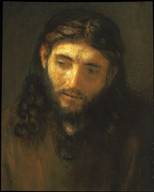Here is a piece written by a severely disabled lady. Anyone who thinks that dying brings dignity should read this and think again.
http://heresycorner.blogspot.com/2009/08/my-life-is-unbearable-dont-fix-it-just.html
Thursday, 27 August 2009
Monday, 24 August 2009
The Founding Fathers
 I'm reading Barack Obama's 'The Audacity of Hope' at the moment. I wonder if when he eventually steps down as President if he will be quite as hopeful. I'm sure there will be some interesting books to come.
I'm reading Barack Obama's 'The Audacity of Hope' at the moment. I wonder if when he eventually steps down as President if he will be quite as hopeful. I'm sure there will be some interesting books to come.What has fascinated me is his analysis of the American Constitution and its relation to the Founding Fathers of the 18th century who drafted it. There is a debate amongst politicians and historians in the US about whether the Consitution was written as a document whose rules must be followed to the letter, or, as Obama argues, it is a 'framework...to organize the way by which we argue about our future.' He sees it as 'a road map by which we marry passion to reason, the ideal of individual freedom to the demands of comunity.' So on one hand you have those who say, 'The Constitution says...and we must do it', and on the other hand those who say, 'These are the principles on which the Constitution is built and in the light of that we should take a particular action.'
It seems to me that there is an exactly similar argument about the place of scripture in the church today. There are those who would say, "We must be an 'Acts' church," that's to say the church today should be a copy of what we see decribed in the Acts of the Apostles. And there are those who prefer to see the principles being worked out in the scriptures and use them to face today's challenges. The problem with the 'Acts church' approach is that, firstly, the church was still in a formational stage in the time of the first apostles and was still rapidly expanding and changing. There is no sense in which Acts was written as a handbook of how the church should be. Secondly, the world we live in today is so different that it is impossible to simply apply a first-century blueprint to today's church. Rather, we need to look back not just to the Acts of the Apostles, but all the writings in the New Testament to understand the principles at work and then apply our reason to connecting them to today's world.
When I've finished 'The Audacity of Hope' the next book on my shelves is Tom Wright's 'Surprised by Hope'. There is so much to be depressed about today that we need people to keep hope alive. What I like about Barack Obama is that he argues for a hopeful and optimistic view of life, but with realism and thoughtfulness. Tom Wright does the same in a theological way.
Subscribe to:
Comments (Atom)
